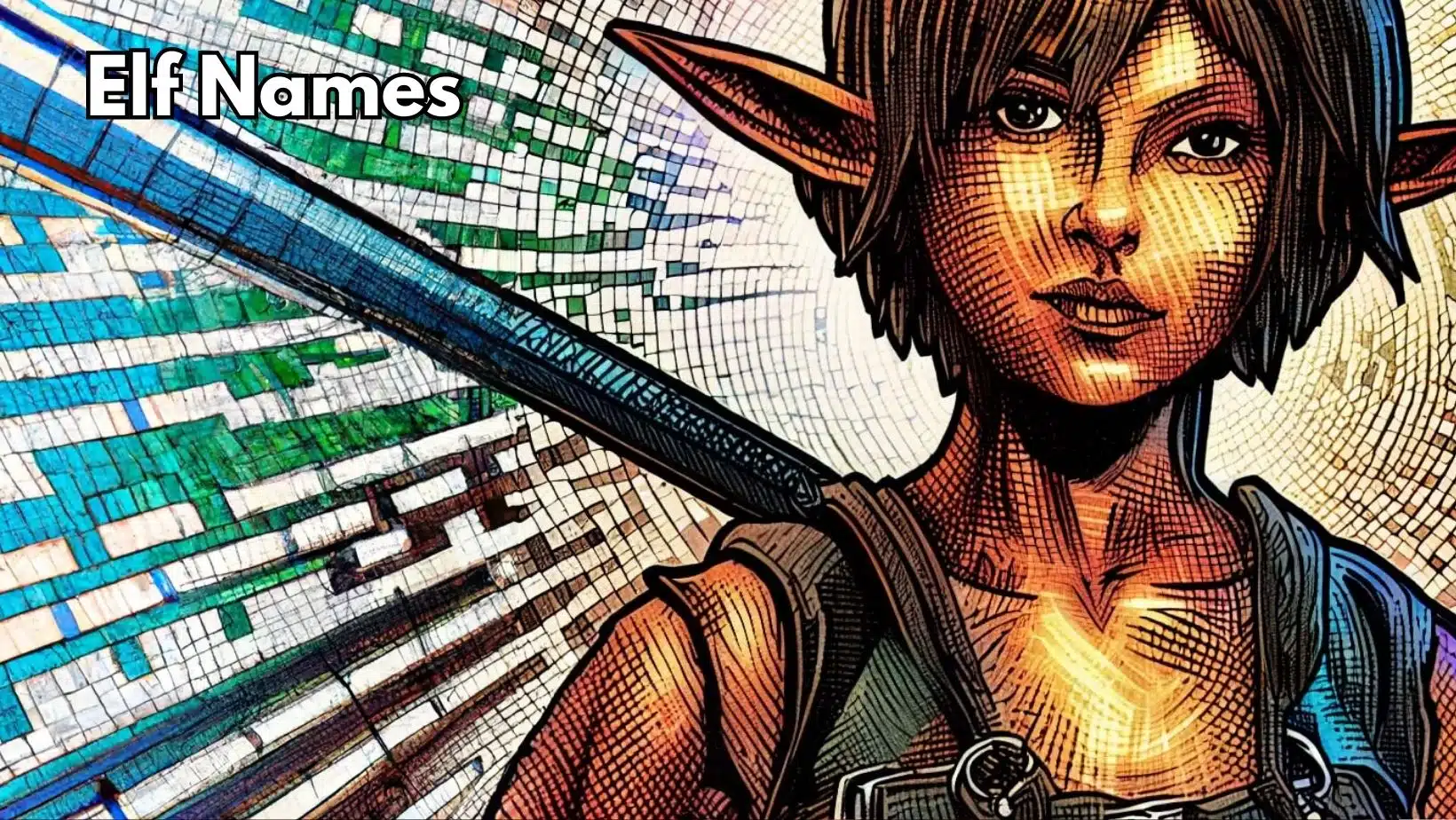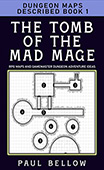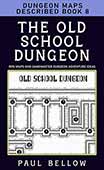Need elf names? We’ve got you covered!
The allure of the elusive and ethereal elf is undeniably a central part of the Dungeons & Dragons allure. Players are not only drawn to their superior intellect, longevity, and magical prowess, but also the beauty and mystique of their unique names. As symbols of an ancient and rich culture, elf names are much more than mere monikers in the game. They hold the power to tell breathtaking stories of centuries past, shaping the identity of the characters and invigorating the lore with a sense of authenticity and depth.
Check out my *advanced* RPG AI Tools [GLOWING]
The Dungeons & Dragons universe is home to distinct cultures and subraces of elves, each with their own distinctive naming patterns and linguistic aesthetics. From the arcane high elves to the woodland elves who immerse themselves in nature’s symphony, and the notorious dark elves descending from the Underdark, elf names offer a creative palette for player characters and NPC creation. At the heart of crafting a memorable Dungeons & Dragons campaign lies the essence of world-building, of which name creation forms a vital part.
Understanding Elven Linguistics
Elf names cast a magical spell through their unique linguistic structure and alluring sound. The elven language, or Elvish as it is often called, has a melodic and fluid phonetic structure, which is symmetrically pleasing and harmoniously flowing in its sound. This results in names that often incorporate a mixture of soft consonants and long vowel sounds.
In their structure, elf names frequently utilize certain syllables, prefixes, and suffixes that add depth and carry significance in the elven culture. Common syllables may include “Thar,” “Van,” or “Ael,” while the likes of “Eledhwen,” meaning “Elf Maiden,” engage beauty and grace through suffixes. Recognizing the structure of an elf’s name not only adds depth to your character but enriches the gameplay with linguistic consistency and believable backgrounds.
High Elf Names
High elves, or “Altmer,” as they’re known in certain lores, possess an air of arcane mystery and sophistication. Being extraordinarily intelligent and magically adept, high elves often bear names that reflect their aristocratic and scholarly standing. High elf names often have a mysterious, magical feel to them, and are usually more complex.
Examples of female High Elf names may include the likes of Laelithar, Sariel, Tariel, and Elenriel, while male elf names range from Erevan, Orophin, Gwennithar to Tharivol. Famous high elves in lore may include Queen Amlaruil Moonflower, a stoic leaders, and Galadriel, the Lady of Light in ‘The Lord of the Rings’ series. Each of these names captures the grandeur and intensity of the High Elves, embodying their elegant and intellectual nature with every syllable.
Male High Elf Names:
- Ithilanen
- Elolindir
- Belloron
- Mitharon
- Carrathal
- Inglanor
- Yenion
- Therindell
- Loravien
- Hallandor
- Saelethil
- Galathil
- Ruvanor
- Tytharon
- Erendur
- Halmaris
- Ithelion
- Eldolan
- Nelorfin
- Arannis
Female High Elf Names:
- Isolde
- Eleriel
- Yenlara
- Thalia
- Arindel
- Loriniel
- Miriath
- Celebriel
- Thesalia
- Illyriel
- Lirael
- Saelriel
- Inilara
- Nariel
- Belleria
- Evethis
- Iriel
- Quelista
- Verenelle
- Urielle
Wood Elf Names
Wood Elves, or the Sylvan Elves, are deeply connected with their surrounding nature, preferring to live in harmony with the woodland and its creatures than engage in the arcane arts. Their names reflect such bond, often invoking elements of nature and the wilderness. Here’s a selection of Wood Elf names that echo their intrinsic ties with the forest and their elusive and archaic nature.
Male Wood Elf Names:
- Caladorn
- Thondiril
- Losrithorn
- Yavandal
- Levandil
- Fendorn
- Eldorel
- Haldendor
- Varilorn
- Ruvorn
- Nelorindil
- Guliveren
- Thalandor
- Eldoril
- Elweorn
- Alagorn
- Rovaniel
- Nivethorn
- Caradon
- Thaelandor
Female Wood Elf Names:
- Nivara
- Thaela
- Caelilra
- Lusara
- Faenara
- Elveni
- Tanaura
- Maelis
- Calaelen
- Yllara
- Thalia
- Galanodel
- Yavanna
- Meliana
- Quelenna
- Laelithra
- Althaea
- Eldratha
- Thera
- Yllis
Prominent elves from the wood elf culture often feature in various fantasy franchises.
Dark Elf Names (Drow)
Drow, or dark elves, hail from the Underdark. Revered and feared for their cruel and cunning nature, Drow names often reflect their stark and ruthless life in the shadowy depths. They are dark and sophisticated, often with a harsh edge to their pronunciation.
Male Dark Elf Names:
- Matronis
- Haladavar
- Talabryn
- Zelorin
- Drothik
- Xundor
- Rhyl’Zt
- Ghilanna
- Jhael’Zyn
- Tith Xiltyn
- Zebeyl
- Ilpher
- Feyr’Zt
- Vyer’Zt
- Baenloth
- Zael’Zt
- Ssz’rynn
- Byr’zin
- Firin
- Triel
Female Dark Elf Names:
- Elvraema
- Illindra
- Ysolde
- Baenfere
- Shyntlara
- Zilvra
- Viconia
- Rilyn
- Selvetarm
- Yschwil
- Veyrvryn
- Eclavdra
- Solenzara
- Ilharess
- Bhalistra
- Qilué
- Shyntyl
- Zilvryn
- Larynda
- Baenfere
Notable Drow characters often make appearances in D&D literature and other fantasy universes, each with an intricate backstory that adds vibrancy to the overall world-building.
Elven Family Names and Titles
In elven culture, lineage and heritage hold immense importance, often forming the core of their social structure. Elven family names are not mere surnames but represent an elf’s ancestral lineage and history. These surnames often indicate their familial trade, achievements, and even place of origin. Moreover, they help in distinguishing between elves of the same first name.
Examples of Elven Family Names:
- Amakiir (Gemflower)
- Amastacia (Starflower)
- Galeanna (Moonwhisper)
- Holimion (Diamonddew)
- Ilphelkiir (Gemblossom)
- Liadon (Silverfrond)
- Meliamne (Oakenheel)
- Naïlo (Nightbreeze)
- Siannodel (Moonbrook)
- Xiloscient (Goldpetal)
Creating a cohesive elven family name can be as simple as merging two Elven words that describe your character. For instance, if your elf character is a night wanderer with an affinity for the moon, the family name could be ‘Nightmoon’. Alternatively, you could combine characteristics of their personality and their lineage or trades, such as ‘Brightspear’ for a warrior elf with a sunny disposition.
Incorporating Elf Names in Your Game
Choosing character names in D&D is an important part of role-playing and world-building. Here are some tips to guide players and Dungeon Masters:
Players: When choosing an elf name, consider your character’s backstory and personality traits. This will afford the character greater depth and engagement during the game. Don’t be afraid to be creative, but maintain some grounding in known Elven linguistics for realism.
Dungeon Masters: Use elf names to create engaging NPCs. Whether a formidable high elf wizard or a mysterious drow rogue, a well-chosen name can spark intrigue and plot development. Incorporating elf names into your world-building enriches your setting and provides the depth necessary for a captivating campaign.
Elf names are not just names. They are stories, tying characters to their past, hinting at their future, and expressing their nature. By understanding the cultures of these mysterious beings and using that understanding to create distinctive, evocative names, you can create not just a character but an unforgettable part of your campaign.
Online Tools and Resources
There are several online tools that can prove helpful in generating elf names. Services like Fantasy Name Generators, Donjon, or Seventh Sanctum, and LitRPG Adventures offer random name generator features specifically for elves, providing endless possibilities for high, wood or dark elves. Also, resources like “Elves of Eberron” and the “Player’s Handbook” provide a wealth of information about elven culture to inspire your name creation.
For aficionados who want to dive deeper, “The Languages of Tolkien’s Middle-Earth” by Ruth Noel offers an exploration of Elvish languages, an excellent source for understanding the phonetics and linguistics that influence elf names in D&D. Similarly, the “Forgotten Realms” campaign guide provides extensive insight into the variety of elven cultures within the realms.
Conclusion: Elf Names
Elf names, with their melodious sounds and rich cultural ties, are an integral part of the tapestry that is Dungeons & Dragons. They enhance the immersion of the game, providing both the Dungeon Masters and the players with an extra layer of authenticity and depth.
As we delved into the nuances of the Elven linguistics, the distinctions between high, wood, and dark elves, and the cultural significance of their names, we discovered the beauty and importance of these names. From reflecting an elf’s connection to nature, their arcane interests, or their family lineage – elf names tell a story.
So, whether you’re a player about to embark on your first D&D campaign, or a seasoned Dungeon Master prepping for the next big adventure – embrace the unique charm and elegance of the elven culture. Engage with their history, explore their language, and let your creativity shine to craft meaningful and immersive elf names. After all, in a game of imagination, the smallest details often bring the biggest magic.
Check out my *advanced* RPG AI Tools [GLOWING]







